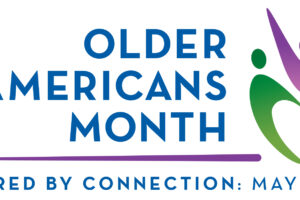Having worked in the college mental health field for over three decades and through my many activities at the national level over the years, I have the benefit of knowing a good deal about the dedication of so many college deans and counselors on campuses across the country.
Their every-day concerns over the course of a student’s four years in college cover a very broad area of problems, most of which would usually be considered “fairly routine” for the undergraduate setting. However, some concerns that come to the deans’ attention are more serious than is commonly assumed for the “healthy college student” population.
We hope that college students can increasingly learn to take personal responsibility for their actions and for becoming more disciplined and self-critical. Concerned parents can think about how their son or daughter has handled difficult situations and set-backs in the past, whether their son or daughter has a pattern of making poor choices, or of “usually blaming others,” and whether they have shown a capacity to learn from their mistakes. But there can also be events in the life of a college student that force them to face emotional conflicts in themselves in a more powerful way than they had previously experienced. Two classic examples would be the breakup of a love relationship and the suicide attempt of a roommate or fellow-student. The resilience of their personality is certainly put to the test.
Also, in a college or university community far more diverse than “back home,” the message from psychoeducational programs that “sex can kill you” comes to take on more meaning. I worked at a prominent university, one of the first to address HIV/AIDS head-on, where even in the 1980’s trees were being planted on campus in memory of students already buried.
The criteria for “maturity” and “immaturity” are always shifting somewhat, but college students have always wrestled painfully with the issues and crises of their day. In the mid-twentieth century the conflicts included unplanned pregnancy and unwelcome parenthood, conflicts around “intermarriage,” divorce, alcoholism, existential anxiety about an imminent atomic or nuclear threat. Except for the latter, most was “swept under the rug” (date rape was “just a misunderstanding,” "gay rights" was an oxymoron), virtually guaranteeing ongoing distress, symptoms, and insidious forms of shame and guilt. Typically these would fester untreated for years, resulting in an enormous waste of time, talent, and opportunity. They paid a very high price for what was really the immaturity of American culture. Among other things, half of them married the wrong person for the wrong reasons at the wrong time, setting their lives on a trajectory of frustration and despair.
I would say that to some extent, the struggles of today’s college students are different variations on familiar themes, except that those themes are many times more complex. What continues to worry, and even alarm, college counselors is the inability of many parents, teachers, school administrators at all levels of the educational system, to recognize the prevalence, complexity, and severity of the emotional problems with which many students must contend. For many colleges, including many in Westchester, the denial is most evident in the inadequate budget the school provides for professional counseling services for its students. For example many schools have, over the years, assumed that troubled students can always get help from a resource in the community. They are unaware that in the mental health area, managed care’s stranglehold on benefits has virtually destroyed the good clinical services in the community that used to be available – and appropriate – for college students before the 1990’s.
The real problems of college students can be far more serious than the routine adjustments of freshmen. These include what turn out to be the neurological underpinnings of many baffling learning problems that had never been properly evaluated, debilitating disorders of depression and anxiety, possible biochemical bases for severe mood shifts. Caveat: bipolar disorder is both under diagnosed and over-diagnosed in the college population, and it is essential for college counselors to have advanced clinical skills. However, in some colleges the college counselor may have a degree in education or in another area but is not a state-licensed mental health professional.
I think it could be said that the complexities of life these days are far greater than in days of yore, but this does not mean that students, as a rule, are on a downhill slide to moral and academic failure. Evidence of students’ “emotional intelligence” and resilience is all around us but we won’t notice if we focus only on the “immature.” What I think is the most dramatic change as our culture limped into the twenty-first century is the fact that, with the advancement of computer technology, everything is now on fast-forward and heading toward breaking the sound barrier. Students and parents can now use email rather than awkward or inconveniently-timed phone calls. However, college students’ use of the internet for social communications, intimate self-revelations on blogs, etc. may pose some real risk for naive or angry students who now have ready access to harmful material such as rampant pornography and “how-to’s” (commit suicide, make a bomb, access the murky culture of sex-change). And so, added to all the other familiar addictions is internet usage. (What I haven’t figured out is how they manage to give this so much time while so many are still able to keep up with their studies.) We may focus our concerns on the students who, for whatever combination of reasons, cannot resist the temptations of the time and culture, while not appreciating those who are profiles of courage and accomplishment.
I do have a very big bone to pick with the media and its pervasive misuse of the term “mentally ill.” The vast majority of depressions and other disorders that college students experience are not “mental illnesses.” “Mental illness” refers to illnesses in which the person is not only seriously incapacitated but they have become unable to distinguish what is real from what is not real. “Psychosis” is usually the generic term applied to mental illness. Typically they experience delusions or hallucinations that worry or frighten people around them. Depending on the severity of the mood disorder, bipolar illness may or may not meet the criteria for “psychosis."
The greater worry should be about the possibility that the “darker side” of a student’s personality (selfish disregard for a roommate or others, refusal to take responsibility for behaviors that have troubled or hurt other people, shallow emotions) may become increasingly “fixed” in the form of a “personality disorder” if the student does not get professional help before it is too late. Unlike bipolar disorders, there is no known effective treatment for many of them once they become consolidated in adulthood. As always in psychotherapy, it all depends on how aware they are of the problem and whether or not they are motivated to change it.
In the case of depression, few people who have consulted a mental health professional are aware that there may be two or more kinds of depression going on at the same time, each needing to be treated differently. I have frequently been troubled that, when college kids say they saw a psychologist for depression when they were in high school, this was never explained to them. It can be a revelation if it is finally explained carefully (if it is) by a clinician at the college level.
Regardless of the struggles of today’s college students, parents may want to be reassured that most colleges are far more savvy about the developmental and emotional needs of their students than in previous decades. Unlike Virginia Tech, which involved catastrophic systemic failures at every level, colleges and universities have long since put into place various psychoeducational programs and security measures, including Crisis Response Teams. They understand the critical need for campus and community resources to collaborate closely with each other. As I write this I am assisting a freshman entering college in another state, whose very physically abusive ex-boyfriend is stalking and threatening her. She has already arranged to meet with the director of counseling on campus who has already communicated formal persona-non-grata papers to Security, with photo, barring him from campus. The entire Security force is on high alert. Security, in turn, is in close contact with the local police and the DA’s office. The director of counseling has already had to use this system several times before. (This is certainly a statement about deterioration in American culture, that this is so common in our citadels of learning.)
Parents can also be reassured that "going to the counseling service" on campus is now a routine part of college life, where "getting your head straightened out" is every bit as important as getting good grades. And while parents adjust to a son or daughter’s departure for college where their child will discover great new things about themselves and "who they really are as people," parents can use this time to reflect on their own lives and development as people, and learn new dimensions of "who they themselves really are and can become." It’s their turn also.
Doris Bertocci, LCSW has a private practice in Irvington.
www.dorisbertocci.com






